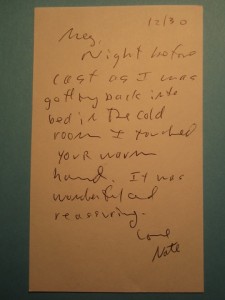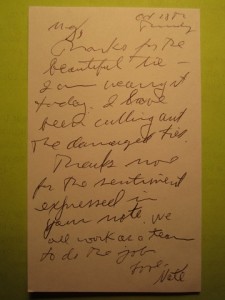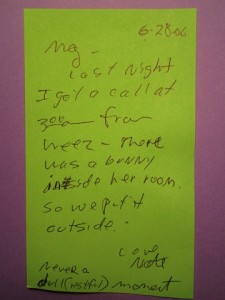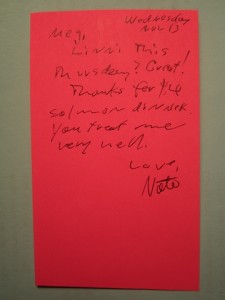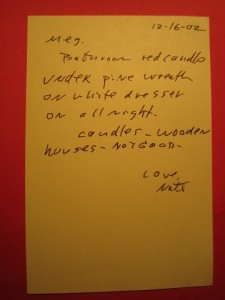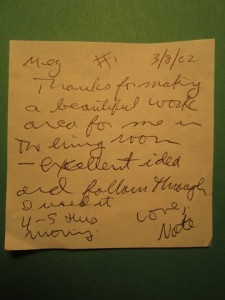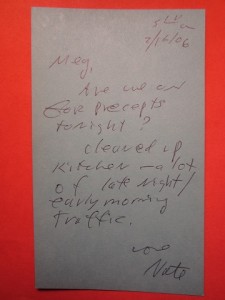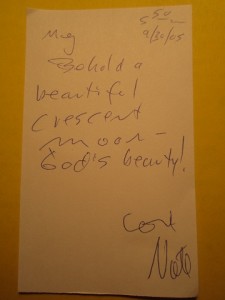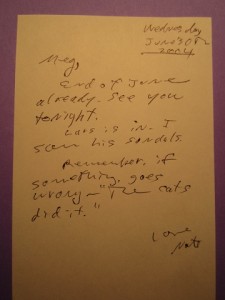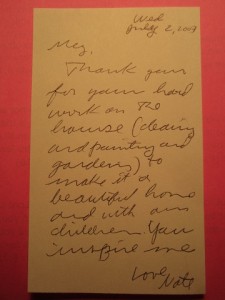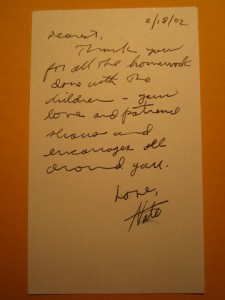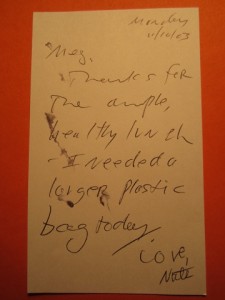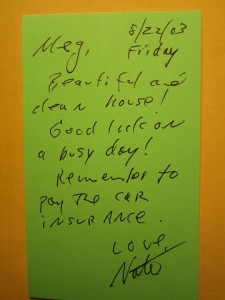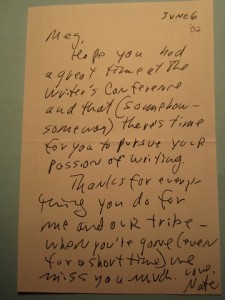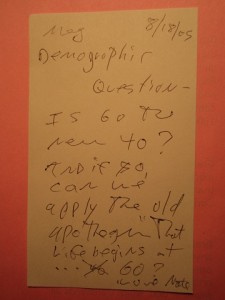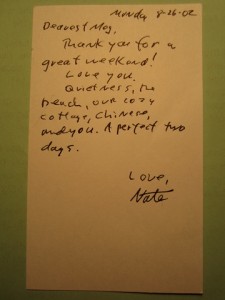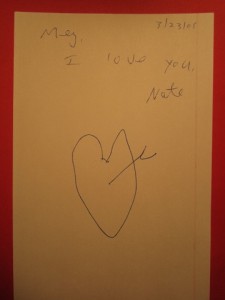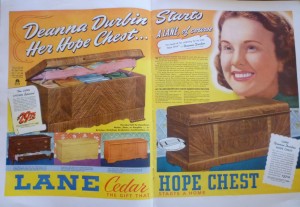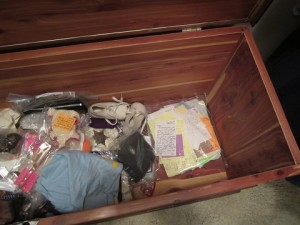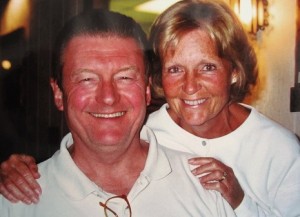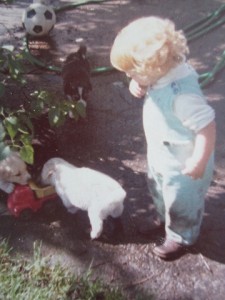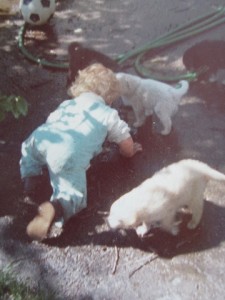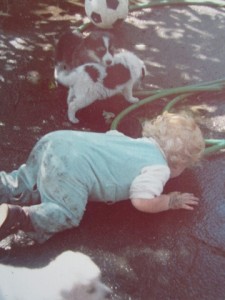Anyone who’s lost someone they love through death is acquainted with the harsh finality of the separation. No new photos of that person, no fresh conversations, no advice or opinions, no notes or cards.
Earlier this week when my Hope Chest revealed a whole bagful of Nate’s handwritten notes that I hadn’t remembered saving, my heart skipped a beat, and I gave the bag a big hug. I believe God led me to those notes to help me develop a spirit of gratitude within my widowhood. In that same spirit, I share a sampling here with you.
Rising by 5:00 am every morning to make his long commute to Chicago’s Loop, Nate and I didn’t connect on workday mornings. Instead his greeting to me was a 3 x 5 card, usually propped against the coffee pot. Despite the financial crucible he was experiencing at the time, a positive tenor flowed through his messages. Reading them from my current position without him, has been inspirational.
(No need to read them all, if you can even read them at all!)
It’s good for each of us to ask, “When my family is disposing of my things, what statements will my life be making?”
If I could choose one theme I’d like them to find, it would be gratitude, and not just gratitude in general, but gratitude to God. I have a long way to go, but Nate’s notes have inspired me in that direction. Maybe I’ll even buy myself a pack of 3 x 5 cards.
“Give thanks to the Lord, for he is good! His faithful love endures forever.” (1 Chronicles 16:34)

